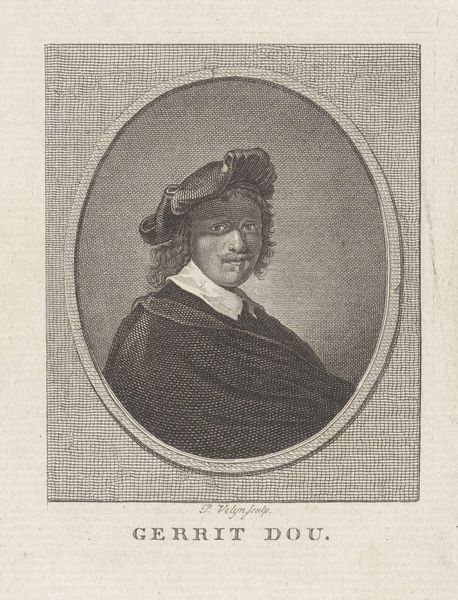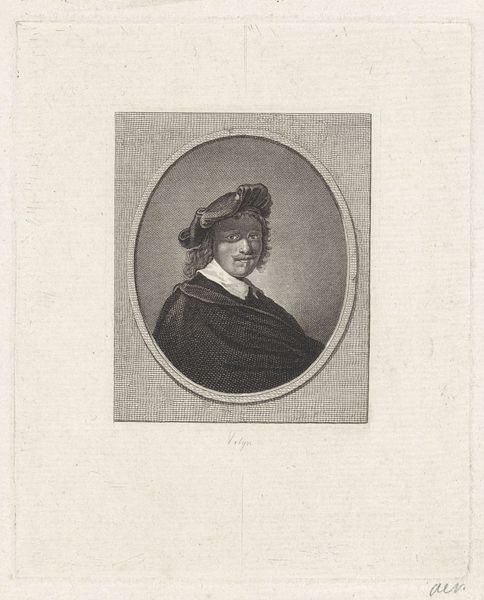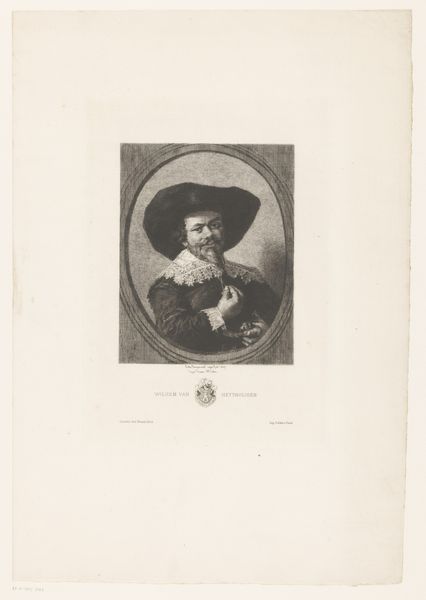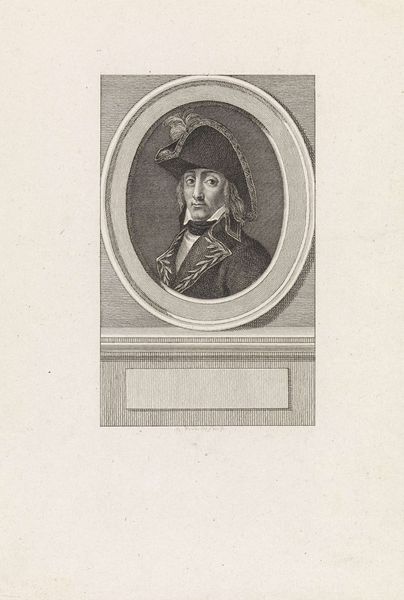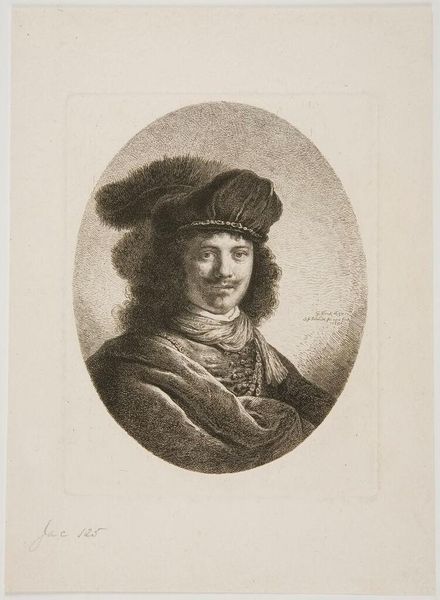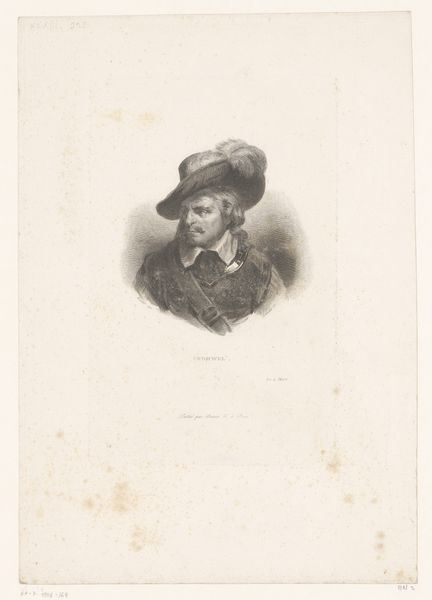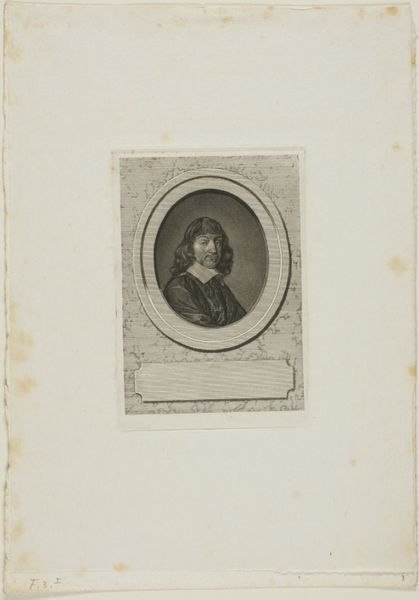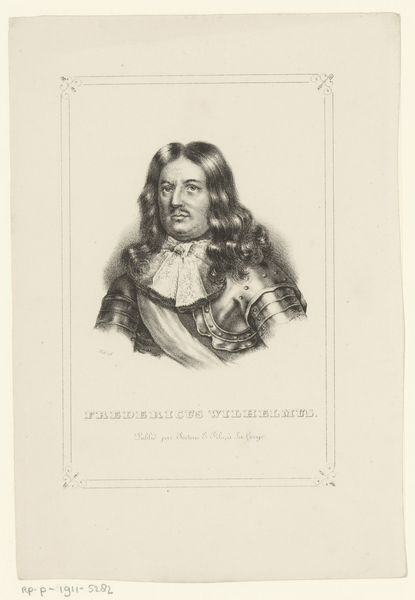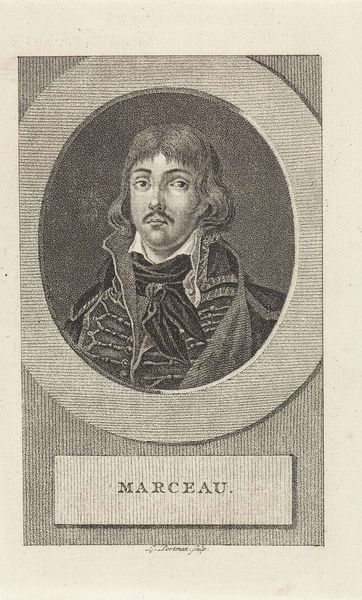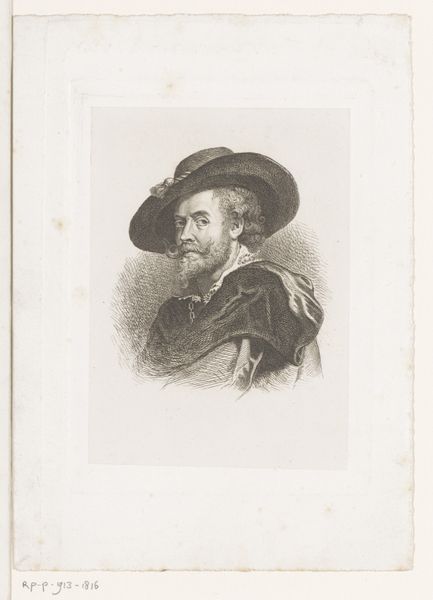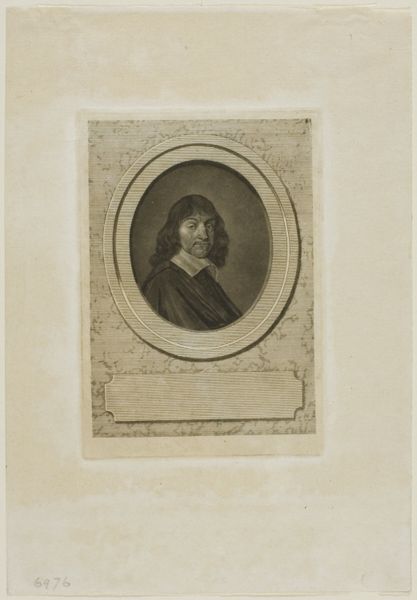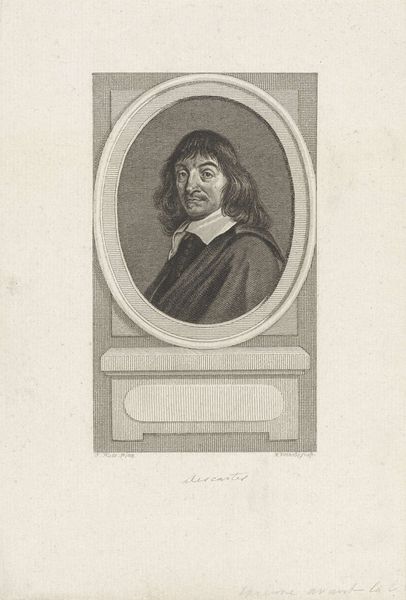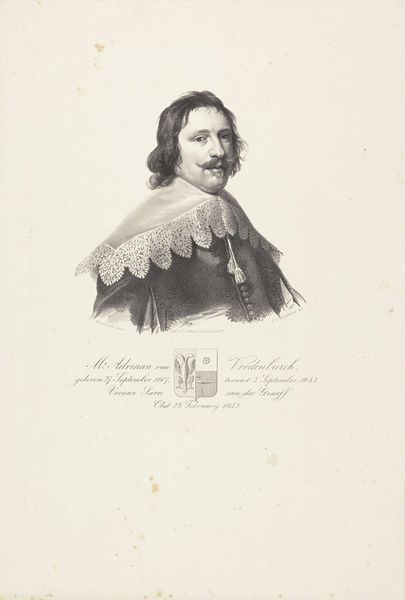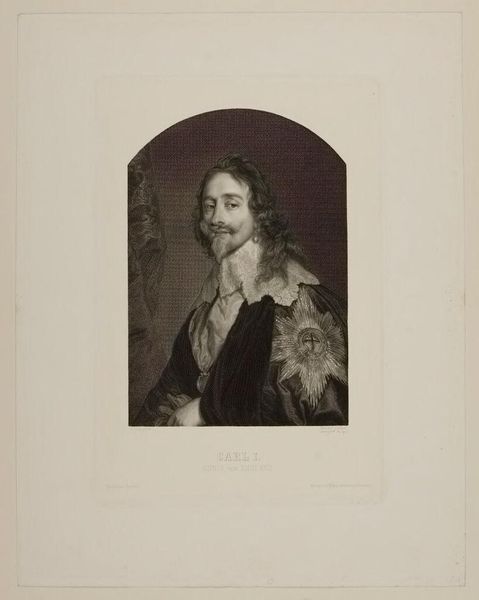
drawing, pencil, graphite, engraving
#
portrait
#
pencil drawn
#
drawing
#
neoclassicism
#
pencil drawing
#
pencil
#
graphite
#
academic-art
#
graphite
#
engraving
Dimensions: height 428 mm, width 310 mm
Copyright: Rijks Museum: Open Domain
Editor: So, this is *Man’s Portrait with Cap and Chain* by Lambertus Antonius Claessens, made sometime between 1829 and 1834. It's a graphite drawing, and it has this serious, almost theatrical mood. How do you interpret this work? Curator: This portrait invites us to consider the role of representation and identity. Notice the chain. Who did it represent? Why was this man worthy of memorialization in such detail? How might class have played into this decision? It is also vital to consider how the image has survived into the present. Who gets remembered? Who controls this narrative? Editor: It's interesting to think about who is deemed worthy of portrayal. Is the artistic style – its clear Neoclassical influences – significant? Curator: Absolutely. Neoclassicism often evokes notions of idealized form, reason, and order. But doesn't this portrait also feel very human? Can the portrait, even within this established style, hint at underlying socio-political complexities? Editor: It does feel like there's more than meets the eye. I never would have considered all that. Curator: Exactly. This portrait is a springboard for discussing the power structures embedded in art. Think of the rise of the middle classes at this time: Who suddenly had money to become patrons of the arts? Who now felt they were equally important as those "at the top?" Editor: That perspective has made me rethink the portrait entirely! Curator: These older artworks are often more reflective of contemporary society than you might think at first glance.
Comments
No comments
Be the first to comment and join the conversation on the ultimate creative platform.
